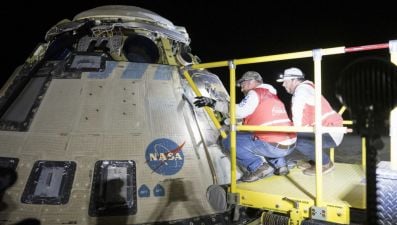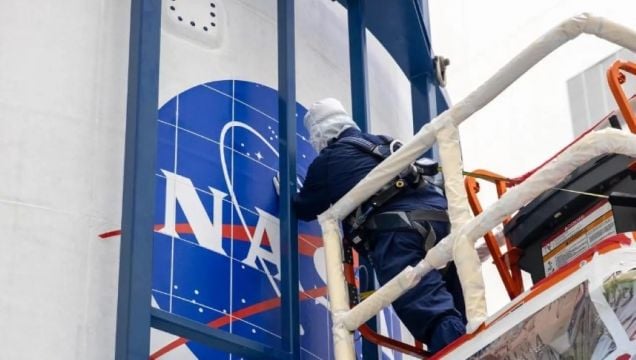The main focus of a space mission exploring one of Jupiter's icy moons is "not looking for E.T.", but will focus instead on exploring whether conditions on the Europa moon are potentially habitable.
This is according to national outreach manager of Space Week Ireland from MTU Blackrock Castle Observatory, Rob O'Sullivan, who said the conditions of Earth's oceans, including extreme pressure, darkness, and temperatures, could provide clues and help inform our understanding of potential life beneath the icy surfaces of moons like Jupiter's Europa.
Nasa and SpaceX have stood down from the original Thursday launch attempt of the Europa Clipper spacecraft due to anticipated hurricane conditions, as high winds and heavy rain are expected at the Kennedy Space Centre.
However, the Europa Clipper will have launch windows until November 6th.
O'Sullivan explained that the mission is focused on looking for signs that Europa is potentially habitable, and is not actively looking for life.
"We’re not actively looking for life itself, we’re looking for signals that it would be potentially habitable. Future missions will go looking more actively and the Europa Clipper is getting very, very close. It's even scouting out potential locations for future missions to land," he said.
"We’re not heading up there trying to pick up E.T. out of the water or anything, but we are trying to make sure that if we're going to bother heading up there that there's a good chance of actually finding him.
"It's a really exciting mission because probably the biggest question we can ask is: 'Are we alone in the universe?'
"We might be the only intelligent species, but even so, if we were to find other life elsewhere out there in the first place we go looking, I think that's a really good sign that it's everywhere and that increases the chance that we’re going to find something intelligent. And that's a really exciting prospect."

O'Sullivan said the reason for the mission is to explore potential links between life on Earth and similar conditions that could facilitate life on Europa.
“The reason we’re going to Europa is because, the life that we have on Earth, we’re fairly confident it evolved at deep sea vents and the conditions that we see here on Earth, we’re almost certain we're going to find those on Europa as well," he said.
"So, if it has the same kind of experimental conditions that led to life here on Earth, it's not unreasonable to assume that life might exist there as well.
"And if it's going to exist there, it's not unreasonable to assume that it might follow a similar evolutionary path to the animals that evolved here on Earth as well. So, you can make educated guesses as to what the organisms might be, if they are there, and what they might look like based on our own evolutionary history."







